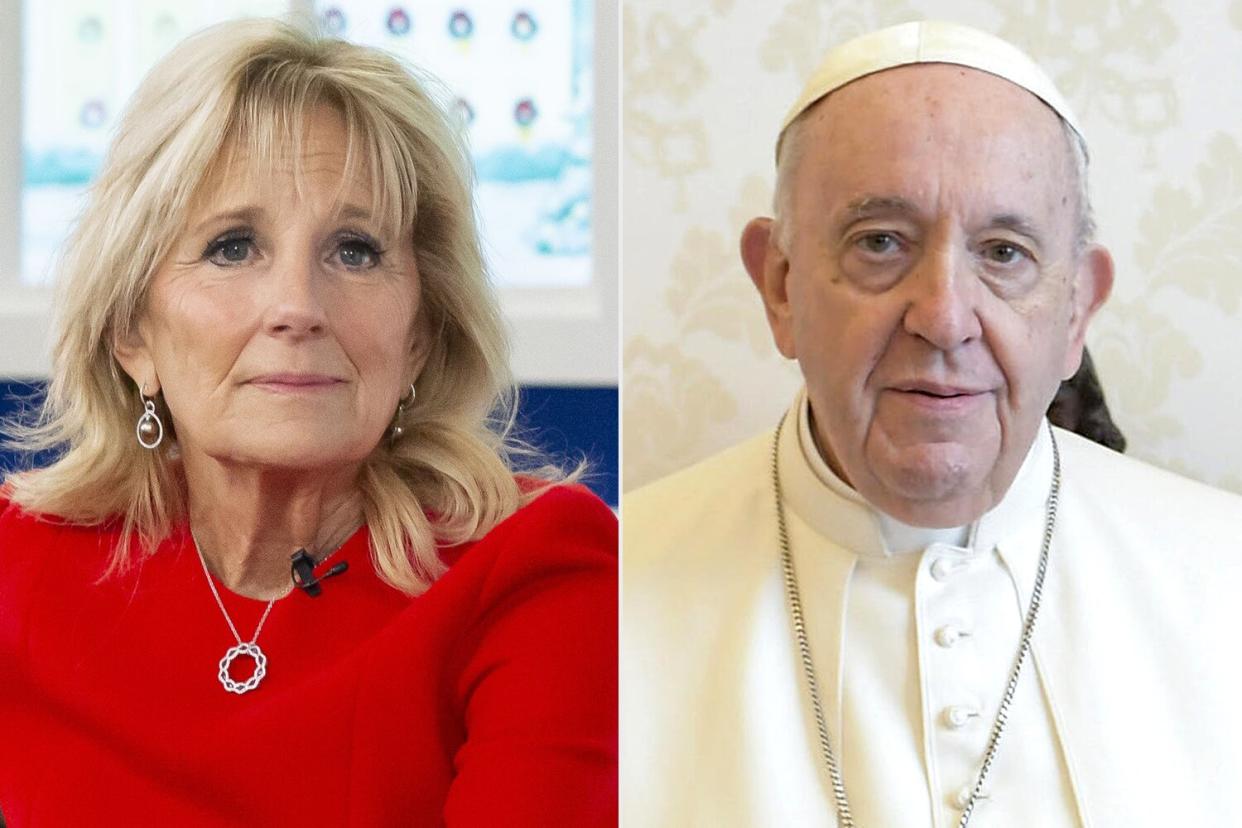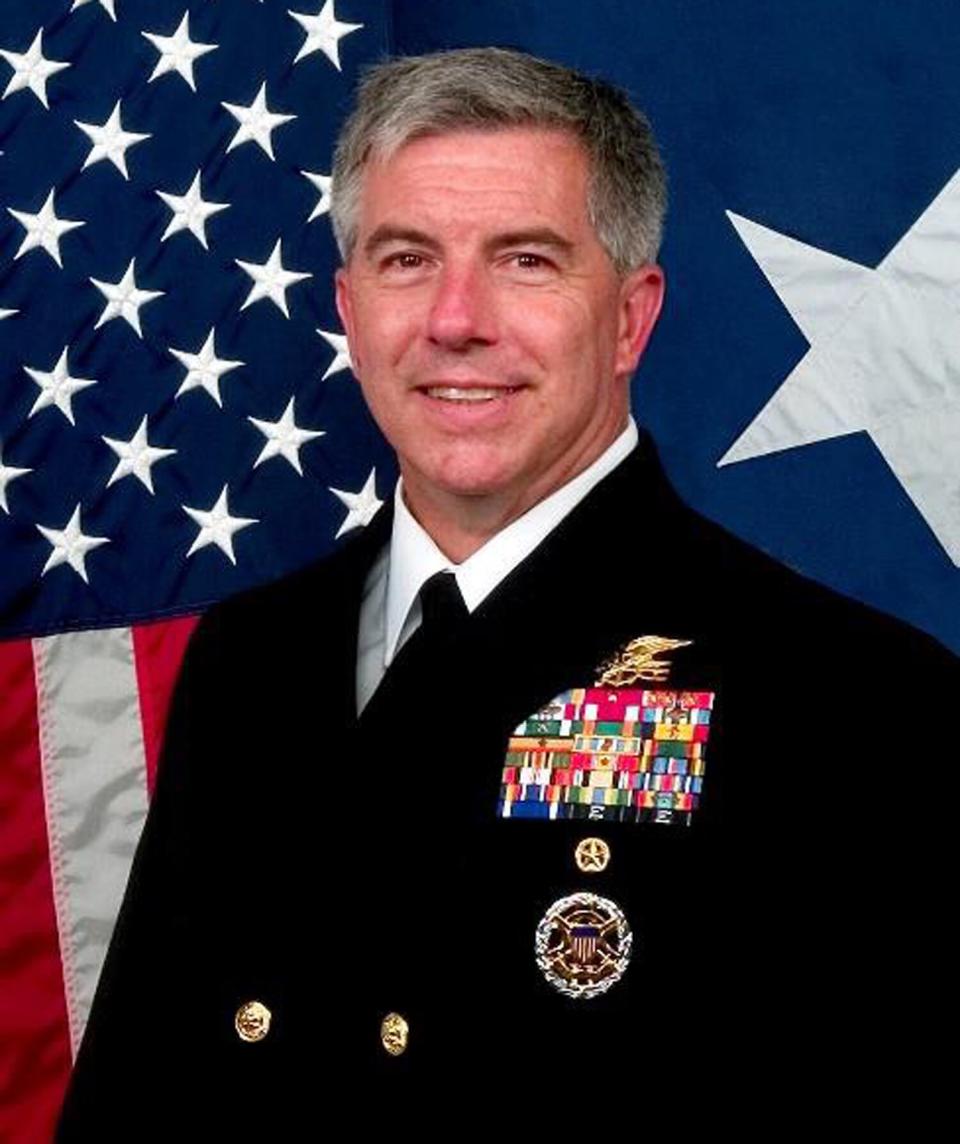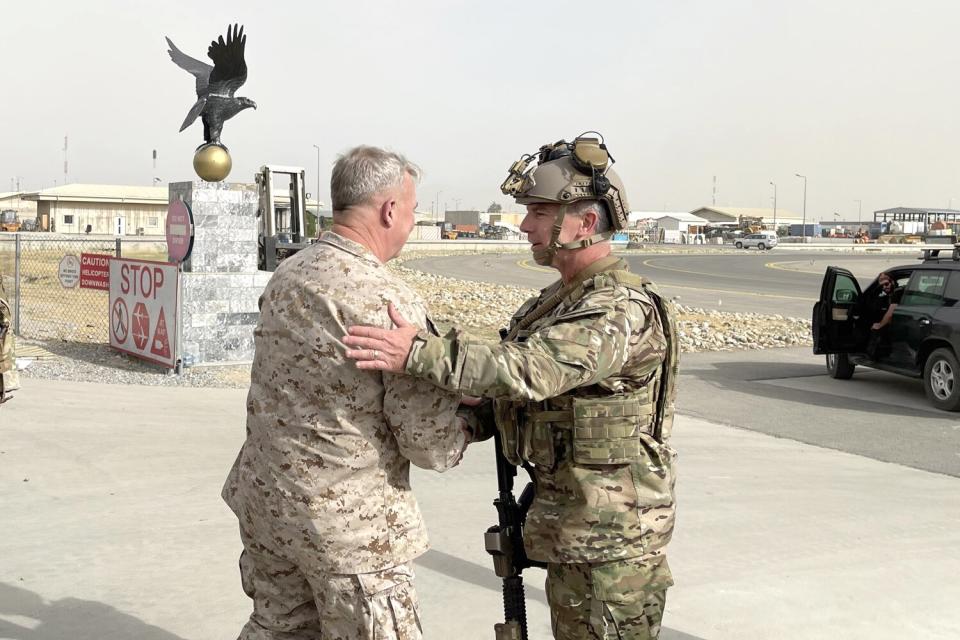Pope, Jill Biden Among Those with Personal Requests That Slowed Down Afghan Withdrawal, Commander Testifies

- Oops!Something went wrong.Please try again later.
- Oops!Something went wrong.Please try again later.
Michael Reynolds/UPI/Shutterstock; VATICAN MEDIA HANDOUT/EPA-EFE/Shutterstock First Lady Jill Biden (left), Pope Francis
An American military commander has reportedly testified that the chaotic U.S. withdrawal from Afghanistan was hampered by continuous requests from notable figures people including politicians, First Lady Dr. Jill Biden and Pope Francis, all which "created competition for already stressed resources."
According to a Washington Post story published Thursday, Rear Adm. Peter Vasely, a Navy SEAL, said in sworn testimony that as the U.S. attempted to evacuate its own citizens as well as lawful permanent residents and Afghans who had assisted the military, the operation center at the Kabul capital airport was swamped with calls and messages from those pleading for help with specific groups of people.
Vasely's testimony was part of an Army investigation into the Aug. 26 suicide bombing outside Kabul's international airport and found in a report obtained by the Post through a Freedom of Information Act request. (Spokespeople for the first lady did not respond to a request for comment on Vasely's account; neither did the Vatican.)
"You had everyone from the White House down with a new flavor of the day for prioritization," Vasely said in his testimony, according to the Post.
"I was being contacted by representatives from the Holy See to assist the Italian military contingent … in getting through groups … of special interest to the Vatican. That is just one of many examples," the admiral said. "I cannot stress enough how these high-profile requests ate up bandwidth and created competition for already stressed resources."
RELATED: A Baby Lost During Afghanistan Exit Has Been Found: 'There Are Celebrations'

U.S. Department of Defense Peter G. Vasely
Last April, President Joe Biden announced that all U.S. military troops would withdraw from Afghanistan by Sept. 11 — 20 years after the 2001 terror attacks that sparked the country's longest war.
In the following months, the U.S. completed a full-scale withdrawal as the Taliban who had been held at bay swiftly retook the country's cities. Their fighters were met with little resistance from the Afghan army and its democratic government, which soon collapsed.
The Taliban's takeover led to scenes of disarray and panic at the Kabul airport in August as the U.S. evacuated its own citizens as well as allies before the last U.S. military plane left the region on Aug. 30, officially signaling the end of the war.
Biden has repeatedly had to defend his decision to exit the country after a decades-long conflict with no clear goal beyond killing 9/11 mastermind Osama bin Laden. Exiting Afghanistan was unsuccessfully sought by two previous presidents. But critics said the military and the Biden White House badly bungled the withdrawal — leaving vulnerable allies in the lurch.
According to Vasely and others interviewed in the military's recently declassified report, per the Post, the chaos was at least partially because the White House and State Department had resisted efforts by the Pentagon to evacuate embassy personnel and allies weeks earlier. The administration said at the time they believed the central Afghan government would not fall so quickly.
Asked by NBC News if he rejected those conclusions from the report, President Joe Biden said: "Yes, I am ... I'm rejecting them."
In a speech from the White House prior to the last U.S. flight leaving the country, Biden admitted there had been mistakes in how the military exit unfolded — which fueled the chorus of criticism at home — but he said he had not wavered in his estimation about what was best for the country after two decades of war abroad.

Shutterstock Peter Vasely
Never miss a story — sign up for PEOPLE's free daily newsletter to stay up-to-date on the best of what PEOPLE has to offer, from juicy celebrity news to compelling human interest stories.
"I'm left again to ask of those who argue that we should stay: How many more generations of America's daughters and sons would you have me send to fight Afghanistan's civil war if Afghan troops will not? How many more lives, American lives, is it worth? How many endless rows of headstones at Arlington National Cemetery?"
Some 124,000 people were ultimately evacuated from the country ahead of the official U.S. exit from Afghanistan.

